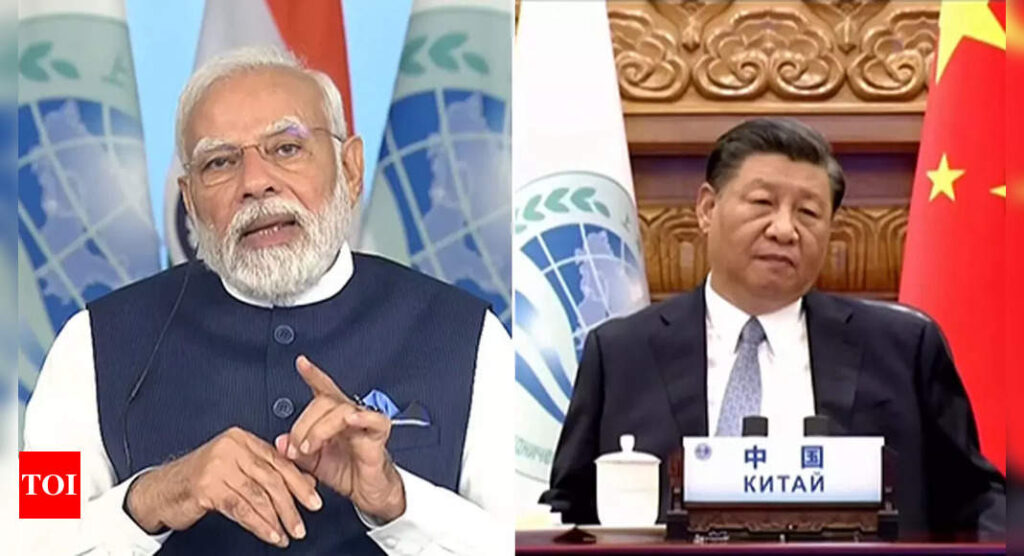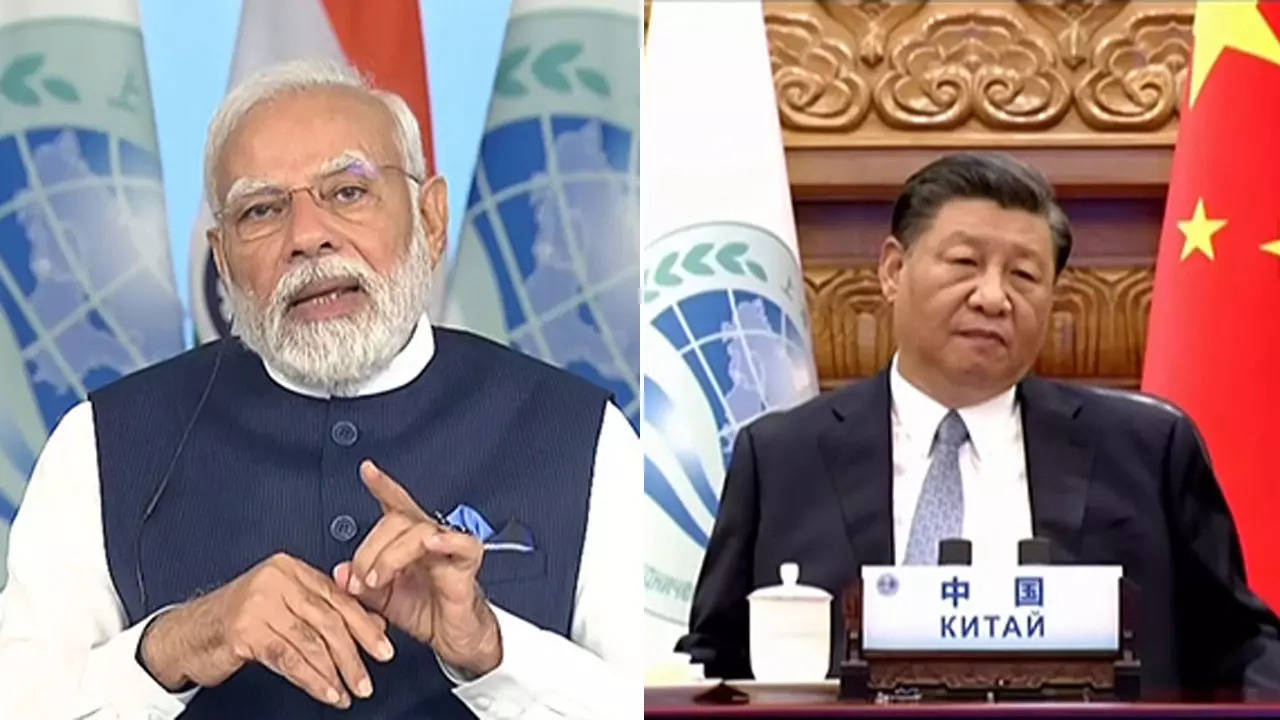At SCO summit, PM Modi’s veiled dig at China’s BRI in presence of Xi Jinping | India News – Times of India

NEW DELHI: In a veiled dig at China’s ambitious Belt and Road Initiative (BRI), Prime Minister Narendra Modi on Tuesday said that while connectivity projects are crucial, it is also important to respect the sovereignty and regional integrity of other countries.
The Prime Minister made these remarks in the presence of Chinese President Xi Jinping while addressing the virtual summit of the Shanghai Cooperation Organisation (SCO).
“Strong connectivity is crucial for the progress of any region. Better connectivity not only enhances mutual trade but also fosters mutual trust. However, in these efforts, it is essential to uphold the basic principles of the SCO charter, particularly respecting the sovereignty and regional integrity of the Member States,” PM Modi said while chairing the SCO summit.
India has strongly objected to the China Pakistan Economic Corridor (CPEC), which is part of the BRI, since it passes through the Pakistan occupied Kashmir (PoK) region.
Later, during a media briefing, foreign secretary Vinay Kwatra said that PM Modi emphasised the significance of connectivity for the progress and development of member states.
In doing so, he also made it clear that while pursuing connectivity initiatives, it is essential to uphold the principles of respecting sovereignty and territorial integrity, Kwatra said.
“Prime Minister clearly said in his remarks that connectivity is important for SCO members states. But connectivity has to be respectful of sovereignty and territorial integrity. India’s position on the BRI has been clear,” Kwatra said when asked about any message to Pakistan or China on the issue of BRI and CPEC.
During his address to the SCO member states, the Prime Minister also took an obvious swipe at Pakistan for supporting terror.
With Pakistan PM Shehbaz Sharif listening, PM Modi said that terrorism poses a threat to regional and global peace as he urged SCO members to call out countries supporting cross-border terrorism as part of their state policy.
(With inputs from agencies)
The Prime Minister made these remarks in the presence of Chinese President Xi Jinping while addressing the virtual summit of the Shanghai Cooperation Organisation (SCO).
“Strong connectivity is crucial for the progress of any region. Better connectivity not only enhances mutual trade but also fosters mutual trust. However, in these efforts, it is essential to uphold the basic principles of the SCO charter, particularly respecting the sovereignty and regional integrity of the Member States,” PM Modi said while chairing the SCO summit.
India has strongly objected to the China Pakistan Economic Corridor (CPEC), which is part of the BRI, since it passes through the Pakistan occupied Kashmir (PoK) region.
Later, during a media briefing, foreign secretary Vinay Kwatra said that PM Modi emphasised the significance of connectivity for the progress and development of member states.
In doing so, he also made it clear that while pursuing connectivity initiatives, it is essential to uphold the principles of respecting sovereignty and territorial integrity, Kwatra said.
“Prime Minister clearly said in his remarks that connectivity is important for SCO members states. But connectivity has to be respectful of sovereignty and territorial integrity. India’s position on the BRI has been clear,” Kwatra said when asked about any message to Pakistan or China on the issue of BRI and CPEC.
During his address to the SCO member states, the Prime Minister also took an obvious swipe at Pakistan for supporting terror.
With Pakistan PM Shehbaz Sharif listening, PM Modi said that terrorism poses a threat to regional and global peace as he urged SCO members to call out countries supporting cross-border terrorism as part of their state policy.
(With inputs from agencies)









